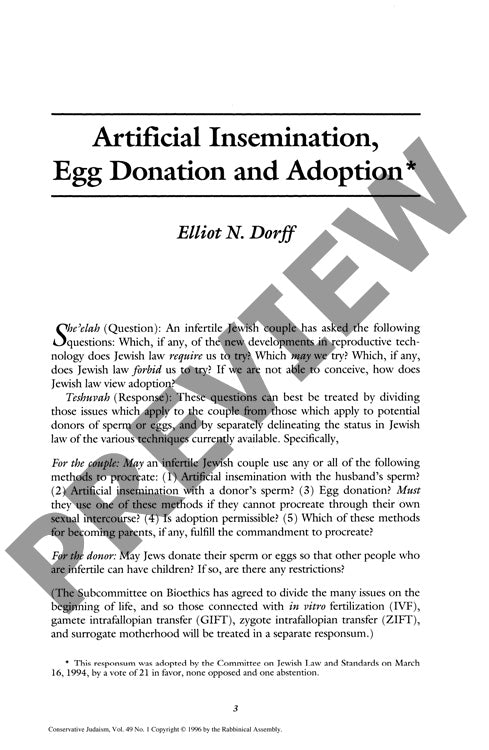Artificial Insemination Egg Donation And
Couldn't load pickup availability
This responsum examines the permissibility of artificial reproductive technologies and adoption within Jewish law for infertile couples. The methodology involves analyzing traditional Jewish sources, including Talmudic discussions of non-sexual conception, medieval commentaries, and contemporary rabbinic responses, while considering the religious, ethical, and practical implications of modern fertility treatments. The study addresses artificial insemination using husband's sperm (A.I.H.), donor insemination (D.I.), and egg donation, evaluating each technique against Jewish legal precedents and the commandment to procreate. Key findings indicate that A.I.H. is generally permitted by most rabbinic authorities, as it involves the husband's genetic material and serves the purpose of procreation rather than wasting seed. The analysis reveals that while Jewish law emphasizes the importance of having children as both a divine blessing and commandment, infertile couples are not obligated to pursue expensive or risky treatments, though they may choose to do so. The responsum concludes that artificial insemination techniques can fulfill the mitzvah of procreation when used appropriately, with the husband credited for fulfilling the commandment regardless of conception method. However, the study acknowledges significant costs—financial, emotional, and psychological—that couples must consider, noting that only half of infertile couples ultimately succeed with available treatments. The work establishes important precedents for Conservative Jewish bioethics while recognizing the complex interplay between traditional sources and contemporary medical realities.

More Information
-
Physical Description
-
Publication Information
Published 1996
ISBN
-
Publication Credits
Elliot Dorff

